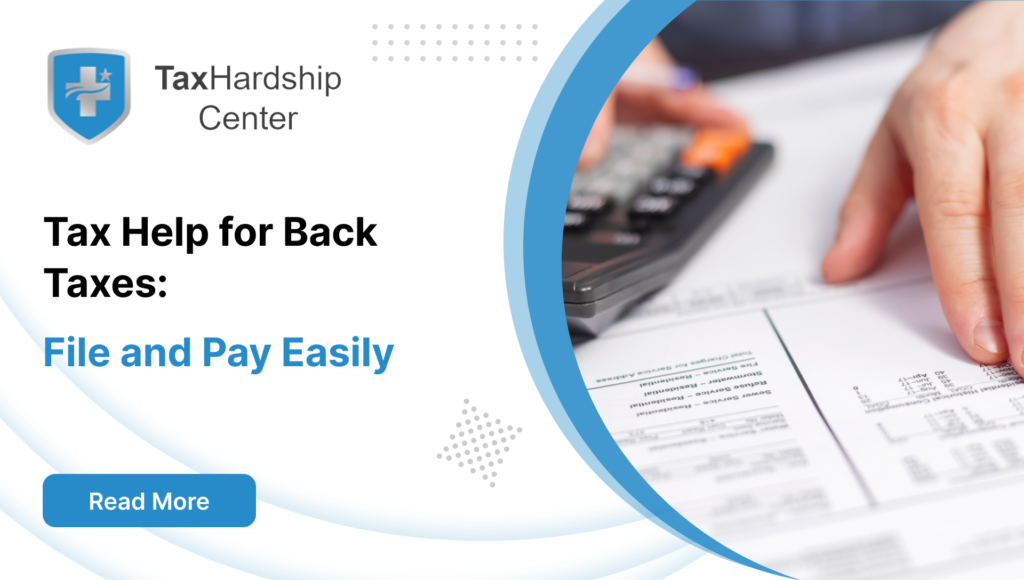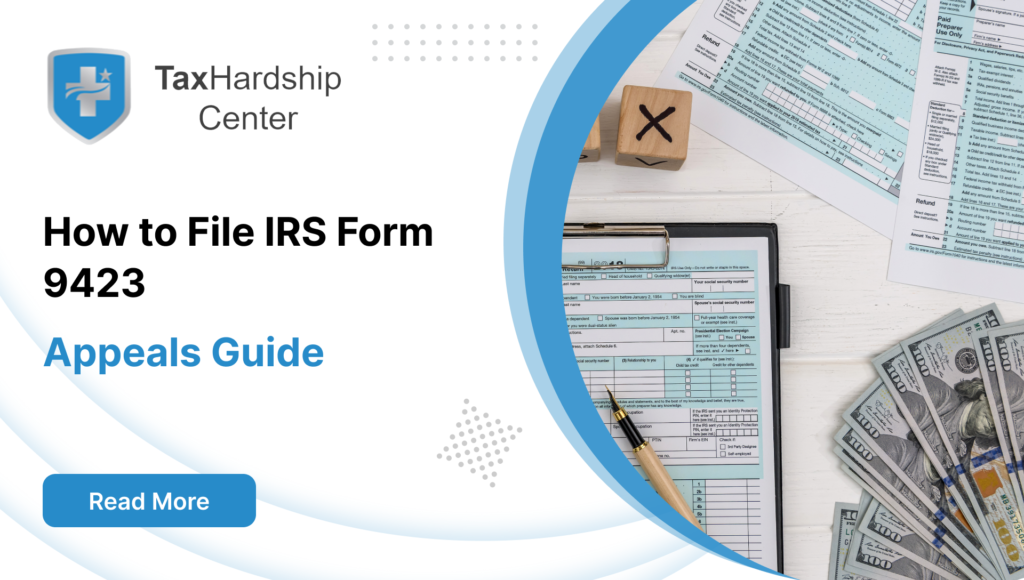Have you ever received an IRS notice you disagree with? Fret not!
The IRS Office of Appeals exists specifically to help taxpayers like you resolve tax disputes outside of court. This independent body within the IRS offers a fair and impartial review of your situation, potentially leading to a more favorable outcome. This comprehensive guide will equip you with everything you need about the IRS Office of Appeals. We’ll delve into its purpose and the appeals process and explore valuable strategies to maximize your chances of a successful resolution. You can confidently navigate a tax disagreement by understanding your options and approaching the process strategically.
What is the IRS Office of Appeals?
The Internal Revenue Service (IRS) Office of Appeals is a valuable resource for taxpayers who disagree with an IRS decision. Established in 1927, it acts as an independent and impartial body within the IRS. Think of it as a second look at your tax situation.
The Office of Appeals strives to resolve tax disagreements fairly and efficiently without resorting to court battles. This can save you time, money, and the stress of litigation. If you believe the IRS has made an error in your tax assessment, the Office of Appeals can be a powerful tool to ensure your voice is heard.
The IRS Office of Appeals exists to help taxpayers resolve their tax disputes through an informal, administrative process. It is independent of the IRS examination, collection, and legal functions. Appeals Officers review cases from a fresh perspective and aim to negotiate a fair resolution between the taxpayer and the government, which could avoid the time and expense of court proceedings.
How Tax Hardship Center Eases Tax Concerns
Are you feeling overwhelmed by the IRS Office of Appeals process? Let Tax Hardship Center be your guide.
Our experienced team specializes in navigating complex tax matters, ensuring you receive fair treatment and resolution. Whether you’re disputing a tax assessment or seeking relief, we’ll provide expert guidance every step of the way.
Resolving tax issues has become much more accessible with the Tax Hardship Center. Schedule a free consultation with the Tax Hardship Center today and regain peace of mind.
Understanding the Audit Notification
An IRS audit notification can be a cause for concern, but it’s important to remember that it doesn’t necessarily mean you’ve made a mistake. The IRS selects tax returns for examination for various reasons, and often, it’s simply to verify certain deductions or income reported.
The notification will clearly explain which parts of your tax return are being reviewed and what documents you must submit to support your filing. It’s crucial to respond promptly and gather the requested documentation meticulously. If you disagree with the IRS findings after the review, you can appeal the decision before any changes to your tax bill are finalized.
Deciding to Appeal: Pros and Cons
If you disagree with an IRS tax adjustment, you can appeal their decision. However, before embarking on this process, it is crucial to carefully consider the pros and cons involved.
Advantages of Appealing:
- Potential for Reduced Tax Liability: A successful appeal could result in a reduction or even complete elimination of the tax adjustments proposed by the IRS. This can lead to significant tax savings.
- Opportunity to Defend Your Position: The appeals process allows you to present your case and supporting evidence to the IRS. This can be helpful if you believe the initial assessment was made in error or based on incomplete information.
Disadvantages of Appealing:
- Time Commitment: Appealing a tax decision can be lengthy, often taking months or even years to resolve. This requires patience and a willingness to dedicate time to gathering documentation and preparing your case.
- Stress and Uncertainty: Tax disputes can be stressful, and the uncertainty of the outcome can be a burden.
- Potential Costs: While there is no upfront fee to file an appeal, you may incur costs if you require professional help from a tax attorney or CPA.
Making an Informed Decision:
The decision to appeal ultimately depends on your circumstances. Consider the following factors:
- The amount of money at stake: If the tax adjustment is significant, the potential savings from a successful appeal may outweigh the drawbacks.
- The strength of your case: Do you have clear documentation and evidence to support your position?
- Your risk tolerance: Are you comfortable with a protracted dispute’s potential stress and uncertainty?
It’s essential to weigh the pros and cons before appealing an IRS decision. Consulting with a tax professional can help you evaluate your situation and determine the best action.
Appealing an IRS Audit: A Step-by-Step Guide
While receiving an IRS audit can be stressful, it’s important to remember that you have the right to appeal their findings if you disagree. The appeals process may seem daunting, but by understanding the steps involved, you can approach it with confidence. Here’s a breakdown of the typical stages:
- Know Your Rights and Time Limits: The first step is familiarizing yourself with your appeal rights and the critical deadlines. The IRS will typically provide information about appealing their decision in the audit letter you receive. This includes the timeframe for filing a formal protest, which is usually 30 days from the date of the letter.
- Filing a Written Protest: Once you decide to appeal, you must submit a formal written protest to the IRS. This document should clearly outline why you disagree with the audit findings. Be sure to include relevant details and calculations to support your arguments.
- Gather Evidence and Prepare for Your Hearing: While waiting for a response to your protest, gather any documentation that strengthens your case. This might include receipts, invoices, bank statements, or other relevant records. The Appeals Officer will assign your case and schedule a hearing to discuss the disputed items. Use this time to prepare your arguments and anticipate questions the officer might ask.
- The Hearing: During the hearing, you’ll have the opportunity to present your case and explain why you believe the audit findings are incorrect. Be prepared to answer questions from the Appeals Officer and provide any additional documentation they may request. It’s also important to listen attentively to the IRS’s position and be open to discussing potential solutions.
- Reaching a Conclusion: The Appeals Officer will issue a written decision following the hearing. This decision could be:
- Full Concession: The IRS agrees with your appeal and adjusts the audit findings in your favor.
- Partial Concession: The IRS agrees with some, but not all, of your arguments, resulting in a revised tax assessment.
- No Concession: The IRS upholds its original audit findings.
Negotiating with the IRS: Strategies and Tips
While rare, there may be situations where you need to negotiate with the IRS. This could involve appealing a tax bill, penalty, or audit decision. Negotiation success often hinges on understanding the IRS’s approach and being well-prepared to present your case. Here are some key strategies to consider:
- Be a Master of Tax Law (for your situation): Equip yourself with a thorough understanding of the specific tax law relevant to your problem. Research IRS publications or consult a tax professional to ensure your arguments are grounded in legitimate interpretations of the tax code.
- Organize Your Evidence Like a Pro: The IRS thrives on documentation. Gather and meticulously organize all relevant documentation supporting your case. This could include receipts, invoices, canceled checks, and any official correspondence you’ve received from the IRS.
- The Art of Compromise: Negotiation is a two-way street. While you should be prepared to advocate for your position, be willing to consider reasonable compromises. This demonstrates a good-faith effort to resolve.
A professional and courteous demeanor goes a long way. By approaching the situation with knowledge, organization, and a willingness to find common ground, you can significantly increase your chances of a successful negotiation with the IRS.
Avoiding Common Mistakes in the Appeals Process
Claiming a home office deduction can significantly reduce your taxable income, but sometimes, the IRS might have differing views on your calculations or eligibility. If that happens, you have the right to appeal their decision. However, navigating the appeals process can be tricky, and some common mistakes can hinder your chances of success. Here’s how to avoid them:
- Missing Deadlines: The IRS has strict deadlines for filing appeals. Missing these deadlines can automatically disqualify you from the process, so it’s crucial to be aware of the specific timeframe and act promptly. Consider setting calendar reminders or contacting a tax professional for guidance on adhering to the timeline.
- Being Unprepared: Appeals often involve presenting your case to the IRS in writing or at a formal hearing. Remember to consider the importance of thorough preparation. Gather all relevant documentation to support your claim, such as receipts for home office expenses, blueprints of your home showing the dedicated workspace, and documentation of your work-from-home arrangement with your employer (if applicable). The more organized and well-supported your case is, the stronger your position will be.
- Failing to Understand the IRS Arguments: The IRS will have its reasons for denying your home office deduction. Take the time to understand the position outlined in their initial notice. This will allow you to directly address their concerns in your appeal and provide counter-arguments with relevant evidence.
You’ll significantly increase your chances of a successful outcome by avoiding these common pitfalls and approaching the appeals process with organization, preparation, and a clear understanding of the IRS’s perspective.
Conclusion:
Understanding your rights and navigating the appeals process can be empowering. Following the steps outlined in this guide and avoiding common pitfalls, you can ensure your voice is heard and achieve a favorable outcome. Remember, seeking professional guidance from a tax advisor can be beneficial throughout the appeals process.
Why Tax Hardship Center?
1. Hassle-Free Assistance:
Say goodbye to sleepless nights and endless tax-related stress. At the Tax Hardship Center, we believe in simplifying the complex. Our team of experts is dedicated to guiding you through every step of the process, ensuring that your tax concerns are met with precision and care.
2. 14-Day Money Back Guarantee:
We’re so confident in our ability to ease your tax worries that we offer a 14-day money-back guarantee. If, for any reason, you’re not satisfied with our service, we’ll gladly refund your investment. Your peace of mind is our top priority!
3. Free Consultation:
Are you curious about how we can transform your tax experience? Book a free consultation now! Our team will assess your situation, answer your questions, and provide free insights tailored to your needs.
4. Nationwide Coverage:
No matter which corner of the United States you call home, the Tax Hardship Center covers you. We proudly serve all 50 states, bringing our expertise to your doorstep. Wherever you are, our commitment to excellence follows.
FAQs:
1. What is the IRS Office of Appeals?
The IRS Office of Appeals is an independent body within the IRS that helps taxpayers resolve tax disputes through an informal administrative process.
2. When should I consider appealing an IRS decision?
If you disagree with an IRS tax adjustment, you can appeal. You should weigh the pros and cons carefully, considering factors like the amount of money at stake, the strength of your case, and your risk tolerance.
3. What are the steps involved in appealing an IRS audit?
The typical stages of an IRS appeal include familiarizing yourself with your rights and deadlines, filing a written protest, gathering evidence and preparing for a hearing, attending the hearing, and receiving the Appeals Officer’s decision.
4. How can I negotiate effectively with the IRS?
Understanding relevant tax law, meticulously organizing your documentation, and demonstrating a willingness to compromise can significantly increase your chances of a successful negotiation.
5. What are some common mistakes to avoid during the appeals process?
Missing deadlines, being unprepared, and failing to understand the IRS’s arguments are pitfalls to avoid during appeals.








